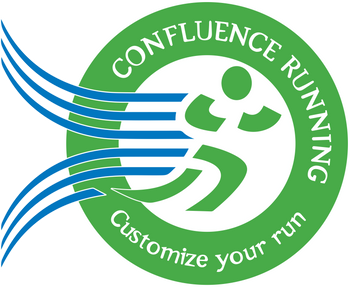The Ultimate Guide to Passing the Police Physical Exam
The Ultimate Guide to Passing the Police Physical Exam
Introduction:
Embarking on a career in law enforcement is a noble pursuit that requires dedication, discipline, and physical fitness. One of the crucial steps in becoming a police officer is passing the police physical exam. This comprehensive guide will provide you with everything you need to know to ace the physical exam and kickstart your journey to serving and protecting your community.
Section 1: Understanding the Police Physical Exam
- Overview of the purpose and significance of the police physical exam.
- Explanation of the various components of the exam, including cardiovascular fitness, strength, agility, and flexibility tests.
- Importance of meeting the minimum physical fitness standards set by law enforcement agencies.
Section 2: Preparing Mentally and Physically
- Mental preparation tips to build confidence and overcome test anxiety.
- Establishing realistic fitness goals and creating a structured training plan.
- Incorporating a balanced diet and adequate hydration into your lifestyle to optimize performance and recovery.
Section 3: Essential Exercises and Training Strategies
- Cardiovascular endurance: Running, cycling, and interval training to improve aerobic capacity.
- Strength training: Bodyweight exercises, weightlifting, and resistance training to build muscular strength and endurance.
- Agility and flexibility: Plyometric drills, agility ladder exercises, and dynamic stretching routines to enhance agility and flexibility.
Section 4: Practice Test Strategies
- Familiarizing yourself with the specific requirements and protocols of the police physical exam.
- Simulating test conditions and practicing the individual components of the exam.
- Utilizing timing techniques and pacing strategies to optimize performance during the actual exam.
Section 5: Recovery and Restorative Techniques
- Importance of adequate rest and recovery to prevent overtraining and reduce the risk of injury.
- Incorporating foam rolling, stretching, and massage therapy into your post-workout routine to alleviate muscle soreness and improve flexibility.
- Prioritizing sleep and relaxation techniques to promote overall physical and mental well-being.
Conclusion:
Passing the police physical exam is a critical milestone on the path to becoming a police officer. By understanding the exam requirements, preparing mentally and physically, implementing effective training strategies, and prioritizing recovery, you can confidently approach the exam and successfully demonstrate your readiness for a career in law enforcement. Stay focused, stay motivated, and remember that perseverance and determination are key to achieving your goals. Good luck on your journey to joining the ranks of our nation's finest!
Introduction:
Embarking on a career in law enforcement is a noble pursuit that requires dedication, discipline, and physical fitness. One of the crucial steps in becoming a police officer is passing the police physical exam. This comprehensive guide will provide you with everything you need to know to ace the physical exam and kickstart your journey to serving and protecting your community.
Section 1: Understanding the Police Physical Exam
- Overview of the purpose and significance of the police physical exam.
- Explanation of the various components of the exam, including cardiovascular fitness, strength, agility, and flexibility tests.
- Importance of meeting the minimum physical fitness standards set by law enforcement agencies.
Section 2: Preparing Mentally and Physically
- Mental preparation tips to build confidence and overcome test anxiety.
- Establishing realistic fitness goals and creating a structured training plan.
- Incorporating a balanced diet and adequate hydration into your lifestyle to optimize performance and recovery.
Section 3: Essential Exercises and Training Strategies
- Cardiovascular endurance: Running, cycling, and interval training to improve aerobic capacity.
- Strength training: Bodyweight exercises, weightlifting, and resistance training to build muscular strength and endurance.
- Agility and flexibility: Plyometric drills, agility ladder exercises, and dynamic stretching routines to enhance agility and flexibility.
Section 4: Practice Test Strategies
- Familiarizing yourself with the specific requirements and protocols of the police physical exam.
- Simulating test conditions and practicing the individual components of the exam.
- Utilizing timing techniques and pacing strategies to optimize performance during the actual exam.
Section 5: Recovery and Restorative Techniques
- Importance of adequate rest and recovery to prevent overtraining and reduce the risk of injury.
- Incorporating foam rolling, stretching, and massage therapy into your post-workout routine to alleviate muscle soreness and improve flexibility.
- Prioritizing sleep and relaxation techniques to promote overall physical and mental well-being.
Conclusion:
Passing the police physical exam is a critical milestone on the path to becoming a police officer. By understanding the exam requirements, preparing mentally and physically, implementing effective training strategies, and prioritizing recovery, you can confidently approach the exam and successfully demonstrate your readiness for a career in law enforcement. Stay focused, stay motivated, and remember that perseverance and determination are key to achieving your goals. Good luck on your journey to joining the ranks of our nation's finest!


